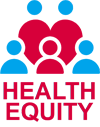EUROsociAL II

Project title: EUROsociAL II
Duration of the project: From 2011 to 2016
Main Topic
EUROsociAL is the European Union program for social cohesion in Latin America. It is developed on the basis of the indications of the Latin American governments that have expressed explicit interest in the program.
Objective
To support planning, reform and implementation of public policies impacting on social cohesion in Latin America.
Type of study
EUROsociAL is structured along four thematic areas:
- Social protection, active employment policies, health and education
- Inclusive public fiscal systems
- Democratic governance
- Public safety and justice
Taking into account the social determinants of health, the thematic area on health focused on health equity. It strengthened the monitoring system and the intersectorial action of the Countries that joined the program: Mexico, Costa Rica, Panama, Colombia, Ecuador, Peru, Chile, Bolivia, Uruguay, Paraguay.
EUROsociAL method of work is based upon the exchange of experiences and collaboration between Latin American and European institutions. Its tools included analytical work, training courses, expert advising, exchange visits.
Expected results
The program contributed to the development of Health Inequality Observatories and Systems in Colombia, Uruguay and Peru.
It strengthened the network among Latin American countries to reduce health inequalities, acting on social determinants of health.
In particular, EUROsociAL contributed to the development of the health equity surveillance system (SVES) in Uruguay. The first Uruguayan Health Inequalities Report (February 2015) highlights social and territorial gaps and gradients. Although not reaching absolute extreme values, SVES allows for strategic planning and resource allocation according to local needs and social heterogeneity.
In Colombia EUROsociAL supported the development of the Health Inequalities Observatory (ODES), as well as the Public Health Intersectorial Commission (CISP), a board including representatives of the Ministries and institutions involved in reducing health inequalities, acting on the social determinants of health (SDH). Starting from the National Public Health Plan 2012-2021 the Ministry of Health and Social Protection of Colombia developed the ODES, collecting SDH information from different sources and institutions. A comprehensive strategy to interpret economic and environmental relationships (named PASE a la equidad) describes SDH and identifies entry points for intersectorial action. The CISP defines technical aspects for intervening on SDH, coordinates each sector role, and proposes institutional, political, administrative, social, economic and cultural mechanisms that allow the sustainability of actions on SDH in the long run.
Responsible of the project: Rita Ferrelli (rita.ferrelli@iss.it)
Department/Center: Servizio Formazione
Project website: www.eurosocial-ii.eu
